What is collagen?
Collagen is the largest and most abundant protein in the body, making up about 30-35% of the total protein. Collagen is in every tissue of the body and is the connective tissue in structures such as skin, hair, nails, bones, lungs, heart and liver. It is often referred to as the glue that holds the body together.
Collagen contains glycine, proline, and hydroxyproline, the three amino acids the body uses to manufacture its own collagen.
What does collagen do, exactly?
1) Smoother, more hydrated skin
Skin and connective tissue contain special cells called fibroblasts that manufacture collagen. They can crank it out as long as they have plenty of glycine, proline, hydroxyproline. The best way to get those amino acids is hydrolyzed collagen, which has been broken down so it’s more bioavailable.
- Improves skin elasticity.
- Decreases skin cracking.
- Helps smooth out wrinkles.
- Increases fibroblast density, a marker of healthy, elastic skin.
- Increases skin moisture.
2) Stronger joints
Collagen can also strengthen joints, increasing their resilience. Several studies have found that taking hydrolyzed collagen decreases joint pain after exercise and increases the density of cartilage, making joints more flexible.
Collagen is also a great hack for endurance athletes, particularly if the preferred exercise is tough on joints. Long-distance running is the worst offender. Most sports take their toll, as can heavy lifting.
3) Faster recovery
Collagen is the main protein the body recruits to help build everything from the connective tissue in skin to the tendons that attach muscles to bone. It works well for several reasons:
- Collagen forms a flexible matrix, covering new tissue while still allowing it to move. It acts as a sort of scaffold that holds everything together so other cells can rebuild.
- It helps keep tissue clean.
- It can assimilate with surrounding tissue, helping to bring pieces of tissue together.



